2018 Provost’s Postdoctoral Fellows
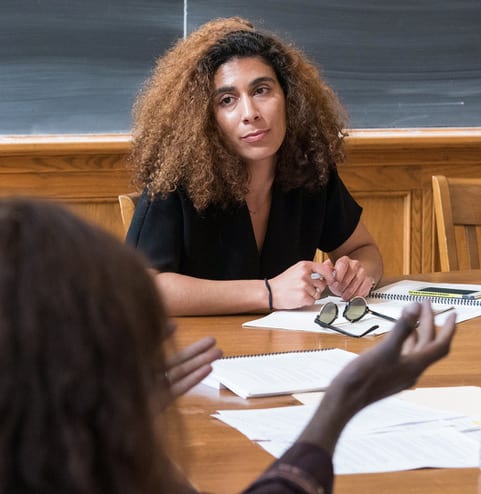
Sophia Azeb
Department: English Language and Literature
Sophia Azeb’s scholarship focuses on diaspora theory, black cultural studies, African and African diasporic literature and film, and Third Worldism, among others. Her current book theorizes how blackness is articulated and mobilized by African American, African, and Afro-Arab writers, artists, and political figures in North Africa and Europe during the twentieth century. From 2011 to 2016, Azeb wrote on the contemporary resonance of these research interests for the critical media blog Africa is a Country. Her writing on politics, popular culture, and the arts has also appeared in the Chimurenga Chronic, The Funambulist, KCET Artbound, The New Inquiry,and The Feminist Wire. Before joining the University of Chicago, Azeb was Provost’s Postdoctoral Fellow at NYU. She received her PhD in American Studies from the University of Southern California, her MA in American Studies from SUNY Buffalo, and her BA in African American Studies and History from SUNY Buffalo.
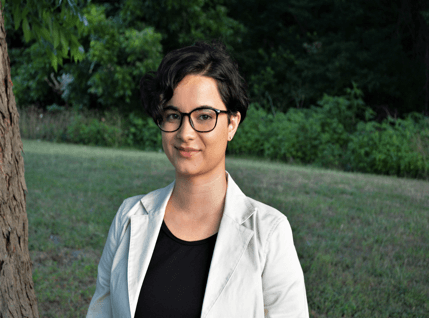
N. Tulio Bermudez
Department: Linguistics
N. Tulio Bermudez studies the documentation and description of grammatical, historical, and typological aspects of indigenous languages in Latin America and the Caribbean. Their work combines empirical, humanistic, and anthropological approaches to analyze how individual speakers and groups creatively manipulate and play with language(s) for a range of sociolinguistic purposes. They advocates for deep ethnography and grassroots collaboration to produce natively-structured and -authored descriptive collections of language and culture. Bermudez’s collaboration with the Naso (Chibchan, Panama) has resulted in a five-volume ‘Naso Cultural Encyclopedia’ written by the Naso for community and educational purposes. Bermudez received a PhD in Linguistics from the University of Texas at Austin and a BA in Linguistics and Psychology from the University of North Carolina at Chapel Hill.

Sharese King
Department: Linguistics
As a sociolinguist, Sharese King investigates questions pertaining to the relationship between race, ethnicity, and language. She recently co-authored a paper with Dr. John Rickford titled, “Language and linguistics on trial: Hearing Rachel Jeantel (and other vernacular speakers) in the Courtroom and Beyond,” in the journal Language. King employs ethnographic methods to study the social and linguistic diversity across African Americans, uses experimental methods to explore how listeners perceive African Americans’ linguistic behavior, and studies the social and political consequences of using racialized language patterns. Prior to joining the University of Chicago, King received a PhD in Linguistics from Stanford University and a BA in Linguistics with a minor in ASL from the University of Rochester.
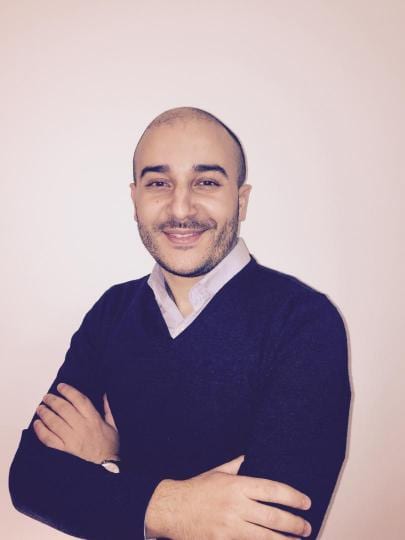
Khalid Lyamlahy
Department: Romance Languages and Literatures
A scholar of African Francophone literature, Khalid Lyamlahy’s research interests include contemporary French fiction and poetry, literary theory, and translation, especially of North Africa. His current work examines representations of identity and otherness in post-2011 North African literature. Past academic work has appeared in The Journal of North African Studies, Expressions Maghrébines, and Revue Roland Barthes. Lyamlahy’s first novel, Un Roman Etranger, was published in January 2017 by Présence Africaine Editions (Paris), and he is a regular contributor to French literary magazines and platforms such as En Attendant Nadeau, Non-Fiction, Apulée, and Cahier Critique de Poésie. Lyamlahy received his PhD from the University of Oxford (St Anne’s College) and his MA in French and Comparative Literature at Université Paris 3 – Sorbonne Nouvelle.

Aresha Martinez-Cardoso
Department: Public Health Sciences
Aresha Martinez-Cardoso is an interdisciplinary public health researcher with an interest in understanding the biosocial mechanisms by which racial inequities shape population health and health disparities. Martinez-Cardoso examines the effects of immigration raids and anti-immigration policies on Latino health, novel biomarkers of stress and aging, and trajectories of cardiovascular health among Mexican migrants in the United States in order to understand how race, migration and social policies affect Latino communities. Publications of note include work in the International Journal of Epidemiology and the Journal of Immigrant and Minority Health. Martinez-Cardoso received a PhD in Health Behavior and Health Education with a specialization in Health Demography from the University of Michigan, Ann Arbor, an MS in Community Health Sciences from the University of California, Los Angeles, and a BA in Latin American Studies from the University of California, Los Angeles.
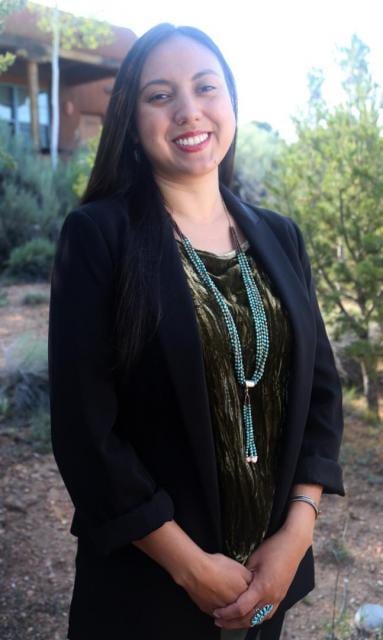
Teresa Montoya
Department: Anthropology
Teresa Montoya’s research engages local modes of relating to understand the sociopolitical context of sovereign action and environmental contamination among Diné communities of present-day northern Arizona and New Mexico. Themes of environmental toxicity and settler colonialism interrogated through this project are central to her ongoing media work in photography and filmmaking, including a current multimodal project, “Tó Łitso/The Day Our River Ran Yellow,” that explores the landscapes and communities affected by the Gold King Mine spill in August 2015. Montoya’s academic writing has been published in Cultural Anthropology and Anthropology Now. Montoya received a PhD in Anthropology from New York University, an MA in Anthropology from the University of Denver, and a BA in Interdisciplinary Humanities with an emphasis in Art History and Spanish from the University of San Diego.

Natacha Nsabimana
Department: Anthropology
Natacha Nsabimana studies postcolonial criticism, law and subjectivity, musical movements, and the cultural and political worlds of African peoples on the continent and the diaspora. Her dissertation examined the afterlives of political violence in post-genocide Rwanda. Other academic work has been published in the Fanon and the Counterinsurgency of Education journal and online on the Johannesburg Workshop in Theory and Criticism blog. Prior to joining the University of Chicago, Nsabimana worked as a fellow with the Heyman Center Public Humanities Fellowship Program at Columbia University. Nsabimana received a PhD in Socio-Cultural Anthropology from Columbia University, She received her MA and BA in Anthropology and Aboriginal Studies from the University of Toronto.
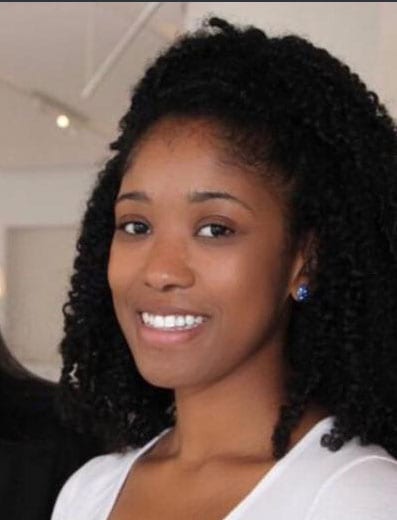
Kaneesha Cherelle Parsard
Department: English Language and Literature
Kaneesha Cherelle Parsard is a Caribbean cultural critic whose research concerns the aftermath of slavery and Indian indentureship. She analyzes these issues through the lens of literature and visual arts within the English-speaking Caribbean. Parsard’s first book manuscript, Improper Dwelling , examines British West Indian housing and planning as a project of racial and spatial order. Her chapter titled, “Cutlass: Objects toward a Theory of Representation,” appears in the edited volume, Indo-Caribbean Feminist Thought: Genealogies, Theories and Enactments (Palgrave Macmillan 2016). Parsard received her PhD in American Studies and African American Studies from Yale University, holds both an MA and MPhil in American Studies and African American Studies from Yale University, and received her BA in English and Africana Studies from the University of Pennsylvania.

Julia Phillips
Department: Visual Arts
Julia Phillips is a visual artist whose intellectual interests are guided by both psychoanalytical and Black feminist thought, as well as issues of post-colonialism and social belonging. Phillips primarily works with ceramics and metal, creating pieces reminiscent of functional objects. The structures of her sculptures suggest a physicality and use for the human body, while their titles evoke social and psychological associations. Her most recent exhibitions include her first institutional solo exhibition, “Failure Detection,” at MoMA PS1, her participation in the 10th Berlin Biennial, “We don’t need another hero,” and her participation in the New Museum Triennial, “Songs for Sabotage”. Prior to Chicago, Phillips worked and studied in Hamburg and New York City, and has participated in several international residency programs.
Photo Caption: Julia Phillips, Tuner, 2016, partially glazed ceramics, screws, and metal bracket. Courtesy: the artist.
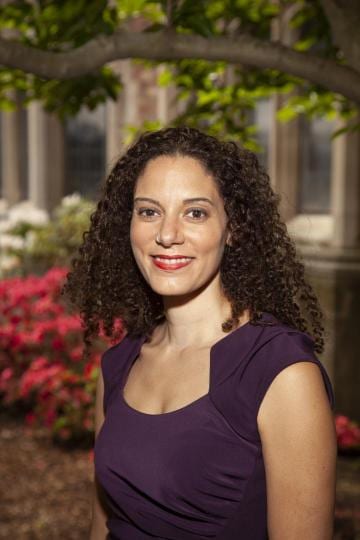
Tina Post
Department: English Language and Literature
Tina Post studies racial performativity, especially as it is entangled with affect, visuality, and materiality. Her current book project, Deadpan Aesthetics in Black Expressive Culture, explores the aesthetic registers of expressionlessness, inscrutability, and emotional withholding in African American cultural production. Beginning with the expressionless faces of mid-twentieth-century documentary photography and proceeding to early twenty-first-century drama, her project tracks deadpan as it appears and evolves in literature, theater, visual and performance art, and the performance of self in everyday life. Post received a PhD in African American Studies and American Studies from Yale University, an MA in Philosophy from Yale University, an MFA in Creative Writing and Literary Arts from University of Alaska, Anchorage, and a BA in English Literature from Wells College.
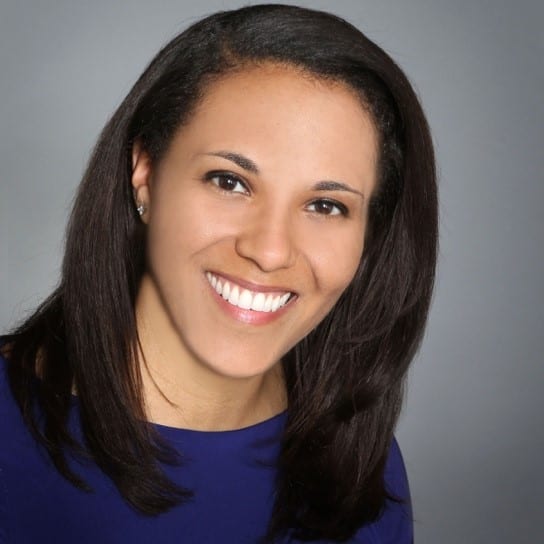
Loren Saulsberry
Department: Public Health Sciences
Loren Saulsberry is a health policy and health services researcher interested in factors that influence both public opinion and behaviors vital to public health. Her research evaluates health care policies and health services that affect cancer care across the continuum from prevention and early detection to cancer outcomes. Saulsberry investigates the relationships between politics and health communication on health policy issues and examines the determinants contributing to health disparities affecting vulnerable populations, especially across race/ethnicity and socioeconomic status. Prior to joining the University of Chicago, Saulsberry was a fellow with the T.H. Chan School of Public Health Yerby Fellowship Program at Harvard University. Saulsberry received a PhD in Health Policy from Harvard University and a double BA in Neuroscience and English from Wellesley College.
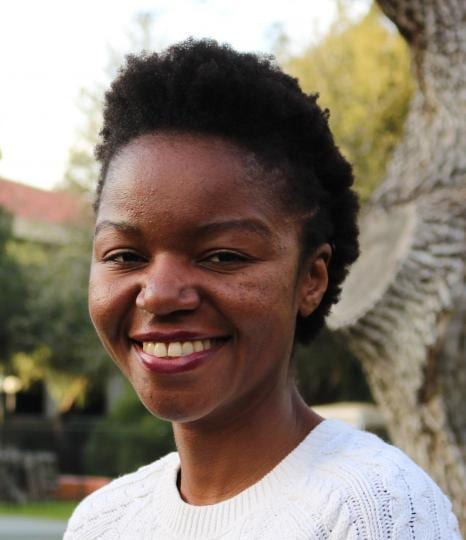
Kathryn Takabvirwa
Department: Anthropology
Kathryn Takabvirwa studies the policing of mobility and of everyday life in Southern Africa, examining the ways that citizen/state relations are reshaped by migration and by economic and sociopolitical crisis. Her research centers on the negotiation of power, meaning, and membership between individuals and the state; the notion of “representation” of the post-colonial African state; as well as resistance, identity and labeling, particularly in the governance of migration. Her current manuscript project examines roadblocks in Zimbabwe, whose recent proliferation provides a key nexus at which questions of legality, legitimacy andauthority can be felt in newly immediate ways. Takabvirwa received a PhD in Social and Cultural Anthropology from Stanford University, an MA in Forced Migration Studies from the University of the Witwatersrand, and a double BA in Anthropology and African Studies from Yale University.

Marcia Tan
Department: Public Health Sciences
Marcia Tan’s research interests focus on reducing health disparities among underserved populations through health behavior change. She examines biopsychosocial and behavioral factors that contribute to health disparities in chronic disease, smoking cessation and weight management among low-income and racial/ethnic minority populations, as well as investigating community-based health behavior interventions to reduce risk factors among disparity populations. Tan’s work has been published in Addictive Behaviors and the Journal of Health Disparities Research and Practice. Prior to joining the University of Chicago, Tan worked as a fellow at the Feinberg School of Medicine at Northwestern University. She received a PhD in Clinical Psychology from the University of Miami, an MPH from the Rollins School of Public Health at Emory University and a BA in Psychology from the University of Alabama, Tuscaloosa.
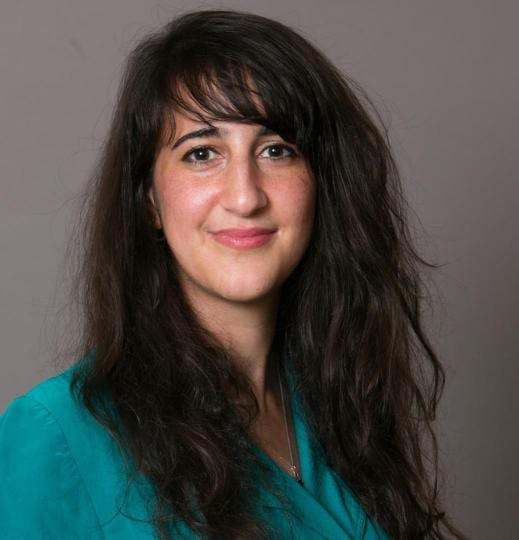
Rochelle Terman
Department: Political Science
Rochelle Terman studies international norms, gender, and advocacy, with a focus on the Muslim world. Terman’s current book project, Backlash: Defiance, Human Rights, and the Politics of Shame, investigates counter-productive consequences of global “naming and shaming” campaigns. She is also interested in computational social science, and teaches courses on machine learning, text analysis, and programming. Terman’s work appears in International Studies Quarterly, Review of International Organizations, and Theory, Culture & Society, among others. Prior to joining UChicago, Terman worked as a postdoctoral scholar at the Center for International Security & Cooperation (CISAC) at Stanford University. She received a PhD in Political Science from the University of California, Berkeley, and a BA in Political Science from the University of Chicago.
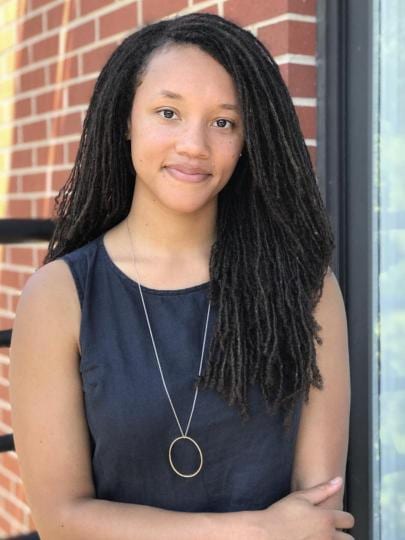
SJ Zhang
Department: English Language and Literature
SJ Zhang research interests surround questions concerning maroon narratives, slave narratives, African American and Caribbean literary history, the francophone US, resistance and revolution, archives of slavery, transatlantic flight and fugitivity. In her work, Zhang explores how historical marronage is represented differently than other forms of flight and freedom from slavery. Her research incorporates both Anglophone and Francophone US and Caribbean texts from the eighteenth and nineteenth centuries. During her doctoral studies, Zhang published a translation of “Bras-Coupé” (French to English) in the journal Transition, for which she also authored an introduction. Zhang holds a PhD in English from the University of California, Berkeley and BA in History and Literature with a minor in French Language and Literature from Harvard University.
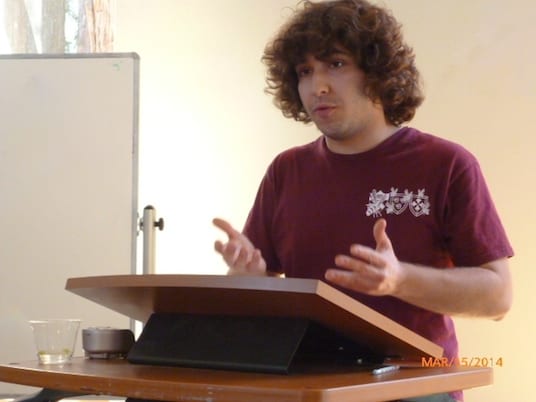
Erik Zyman
Department: Linguistics
Erik Zyman is a theoretical syntactician who seeks to elucidate the rules and principles governing how words (and smaller linguistic units) can and cannot be licitly combined to form larger units in human languages, as well as how those rules and principles do and do not vary across languages, and what their cognitive (and other) underpinnings are. His recent work investigates the properties of certain English adverbs and what they reveal about how and when optional modifiers are inserted into syntactic structures; cross-linguistically unusual types of phrase movement in P’urhepecha, and what they tell about the grammatical “driving force” that causes a phrase to move from one position in a sentence to another; and certain unexpected orders of morphemes within Latin verbs. Zyman received a PhD in Linguistics from the University of California, Santa Cruz, and a BA in Linguistics from Princeton University.
